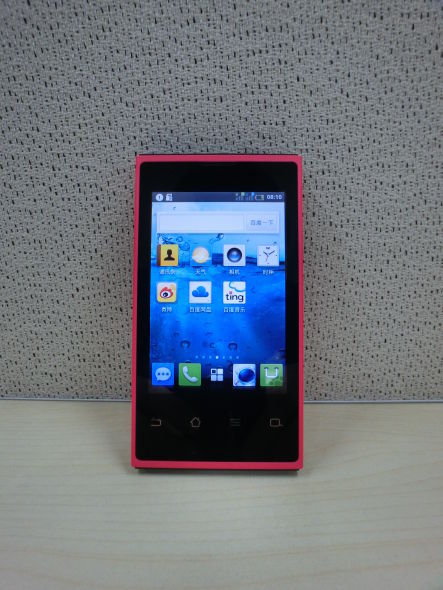
I have to admit that perhaps I was wrong in my initial skepticism about Beijing’s motivations in repeatedly delaying approval for Google’s (Nasdaq: GOOG) purchase of Motorola Mobility (NYSE: MMI), speculating that its foot-dragging might have been motivated by political factors. (previous post) But now that the anti-monopoly regulator has finally approved the deal, I feel like I should actually congratulate it for addressing an important concern that was probably the real source of the delays, namely the potential that Google might give Motorola phones preferential treatment for its Android smartphone operating system at the expense of other major handset makers who also rely heavily on the popular OS. The long-awaited approval, which was delaying closure of a $12.5 billion deal first announced last August, finally came after Google agreed to conditions required by the Chinese regulator aimed at making sure that Android remains open and free to everyone, and that Google treats all cellphone makers who chose to use the operating system equally. (English article) I’ll be the first to admit that my first reaction to most actions by China’s anti-monopoly regulator is one of skepticism, since it has a history of allowing political considerations into its decisions that are largely unrelated to its main mission of ensuring that major M&A deals don’t harm market competition. The regulator’s bias was on glaring display in 2009, when it vetoed Coca Cola’s (NYSE: KU) plan to buy leading domestic juice maker Huiyuan (HKEx: 1886), citing monopolistic concerns even though most observers believed that Beijing simply didn’t want to see the promising domestic brand swallowed up by a foreign company. The regulator seemed to be changing its ways last year when it approved the purchase of another promising Chinese brand by a foreign name, in this case allowing Yum Brands (NYSE: YUM), operator of the KFC and Pizza Hut chains, to buy Little Sheep, operator of China’s largest hot pot restaurant chain. (previous post) The delays behind this latest approval of Google’s purchase of Motorola look like a smart move to me, aimed at addressing the very real concern by many of Android’s users that they might lose access to the OS if Google gives preferential treatment to Motorola. The major regulators in the US and Europe were unlikely to focus on this particular concern, since most of the major cellphone makers that use Android are based in Asia, such as Taiwan’s HTC (Taipei: 2498) and Korea’s Samsung (Seoul: 005930). A growing number of Android users are also in China, most notably Huawei and ZTE (HKEx: 763; Shenzhen: 000063), which are 2 of the world’s fastest growing players in the smartphone space. Thus the regulator was clearly addressing very real concerns from these and other domestic smartphone makers about becoming second-class Android citizens after a Google-Motorola merger, hence the regulator’s decision to impose its conditions. At the end of the day I’m quite encouraged by this action, and increasingly confident that we’ll see more decisions from the regulator based on market concerns rather than political considerations.
Bottom line: China’s long-delayed approval of Google’s Motorola purchase was due to real anti-competitive concerns, and reflects growing maturity at the Chinese regulator.
Related postings 相关文章:
◙ Huawei-Motorola Rumors Look Logical 华为收购摩托罗拉手机业务传言看似合情合理
◙ Google Tussles With China on Motorola 延迟批准摩托罗拉移动交易 中国政府对谷歌仍心存芥蒂
◙ Little Sheep Gets Swallowed: Good for Yum, Good for China M&A 小肥羊被收购对百胜和中国是双赢

 I don’t like to sound too negative for 2 days in a row, but one day after predicting failure for PC giant Lenovo’s (HKEx: 992) new smart TV initiative I have to give a similar forecast for the recent rush into smartphones by a growing number of Chinese Internet players, with search leader Baidu (Nasdaq: BIDU) leading the charge. Chinese media have been buzzing for the last few days about Baidu’s new offering, a low-end smartphone that runs on the company’s self-developed operating system and was co-developed with TV maker Changhong (Shanghai: 600839). (
I don’t like to sound too negative for 2 days in a row, but one day after predicting failure for PC giant Lenovo’s (HKEx: 992) new smart TV initiative I have to give a similar forecast for the recent rush into smartphones by a growing number of Chinese Internet players, with search leader Baidu (Nasdaq: BIDU) leading the charge. Chinese media have been buzzing for the last few days about Baidu’s new offering, a low-end smartphone that runs on the company’s self-developed operating system and was co-developed with TV maker Changhong (Shanghai: 600839). ( Facebook may be making global headlines for its upcoming mega IPO, but the social networking giant is making much quieter headlines in China as well, where local media are saying it has been meeting with potential joint venture partners in its long-stated pursuit of entering the market. (
Facebook may be making global headlines for its upcoming mega IPO, but the social networking giant is making much quieter headlines in China as well, where local media are saying it has been meeting with potential joint venture partners in its long-stated pursuit of entering the market. ( I was highly skeptical at first about a rumor that Google (Nasdaq: GOOG) might be in talks to sell its Motorola Mobility (NYSE: MMI) handset business to telecoms equipment and cellphone giant Huawei; but the more I think about it the more it makes sense, leading me to speculate that the rumor may actually be true. The source of all the buzz is actually quite small, namely a small mention at the very end of a
I was highly skeptical at first about a rumor that Google (Nasdaq: GOOG) might be in talks to sell its Motorola Mobility (NYSE: MMI) handset business to telecoms equipment and cellphone giant Huawei; but the more I think about it the more it makes sense, leading me to speculate that the rumor may actually be true. The source of all the buzz is actually quite small, namely a small mention at the very end of a  Leaders in Beijing seem to be holding a long grudge against Google (Nasdaq: GOOG), following its high-profile withdrawal from the China market in 2010 after a dispute over self-censorship policies. That’s the only conclusion I can draw from the latest news in this stormy relationship, which has seen China emerge as the lone major country that has yet to approve Google’s pending purchase of Motorola Mobility (NYSE: MMI), the faded giant that was once the world’s second largest cellphone maker. All major governments have approved the deal announced last August, in what looks to me like an easy call for most anti-monopoly regulators as Google doesn’t make cellphones and Motorola Mobility is now just a relatively small player in the competitive space anyhow. But for some reason, China’s anti-monopoly regulator has not only failed to approve the deal more than half a year after it was first announced, but has actually said it will need extra time to make a decision. (
Leaders in Beijing seem to be holding a long grudge against Google (Nasdaq: GOOG), following its high-profile withdrawal from the China market in 2010 after a dispute over self-censorship policies. That’s the only conclusion I can draw from the latest news in this stormy relationship, which has seen China emerge as the lone major country that has yet to approve Google’s pending purchase of Motorola Mobility (NYSE: MMI), the faded giant that was once the world’s second largest cellphone maker. All major governments have approved the deal announced last August, in what looks to me like an easy call for most anti-monopoly regulators as Google doesn’t make cellphones and Motorola Mobility is now just a relatively small player in the competitive space anyhow. But for some reason, China’s anti-monopoly regulator has not only failed to approve the deal more than half a year after it was first announced, but has actually said it will need extra time to make a decision. ( Let’s get this story finished and move on! I don’t mean to sound impatient, but that’s my first reaction on reading the latest reports about Alibaba’s endless saga in its quest to buy out the 40 percent stake in itself held by Yahoo (Nasdaq: YHOO). I realize this deal involves a big amount of money, possibly as much as $10 billion, but that said, it’s also quite straightforward since the 2 companies have essentially no shared assets and thus literally all that’s needed is agreement on a price and then for Alibaba to find the financing. According to the latest reports, Alibaba and Yahoo have finally entered into serious discussions, following Yahoo’s naming of a new CEO last month, and the 2 sides fully expect to reach an agreement by mid March. (
Let’s get this story finished and move on! I don’t mean to sound impatient, but that’s my first reaction on reading the latest reports about Alibaba’s endless saga in its quest to buy out the 40 percent stake in itself held by Yahoo (Nasdaq: YHOO). I realize this deal involves a big amount of money, possibly as much as $10 billion, but that said, it’s also quite straightforward since the 2 companies have essentially no shared assets and thus literally all that’s needed is agreement on a price and then for Alibaba to find the financing. According to the latest reports, Alibaba and Yahoo have finally entered into serious discussions, following Yahoo’s naming of a new CEO last month, and the 2 sides fully expect to reach an agreement by mid March. (